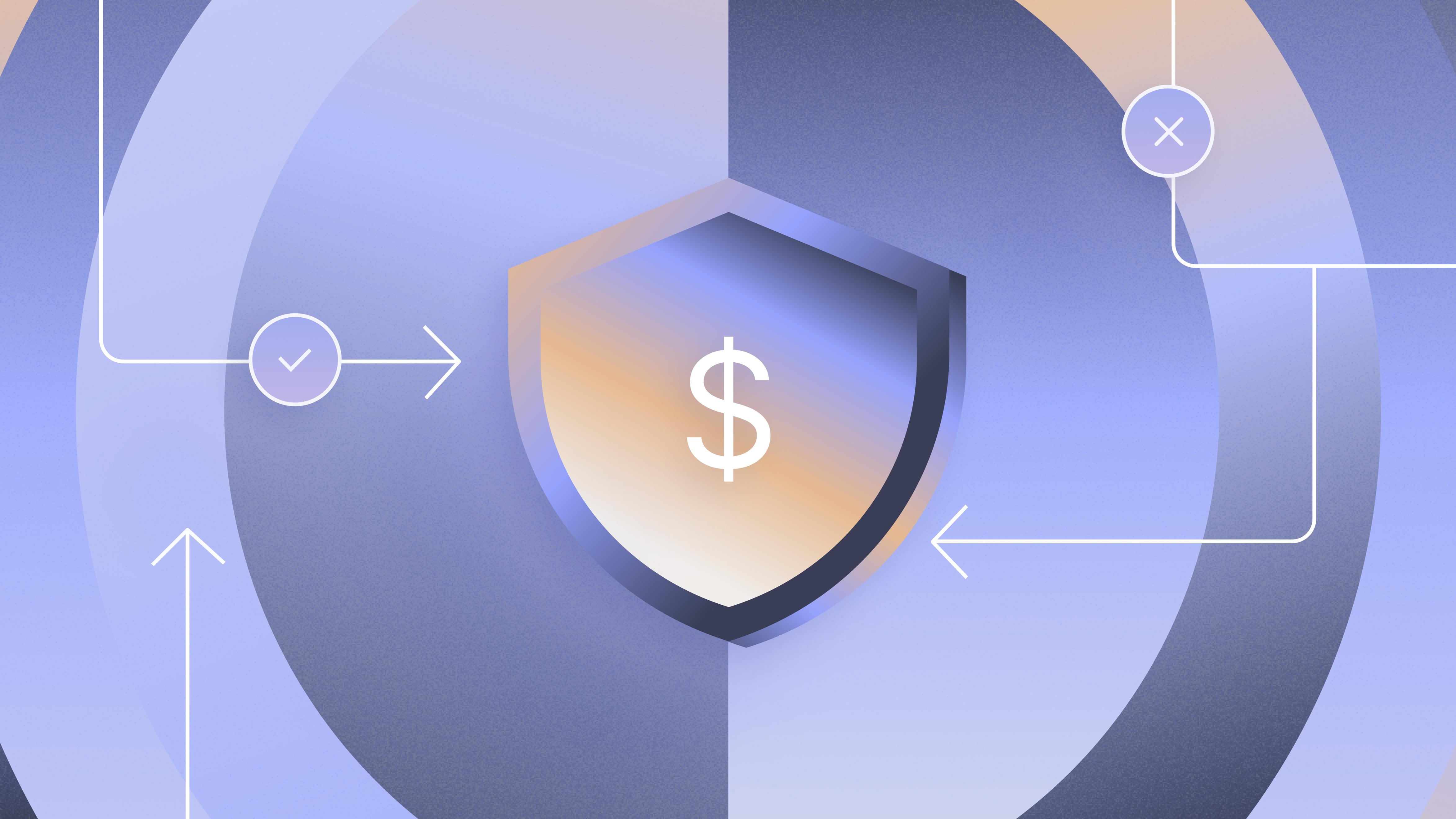How to choose the right type of ecommerce business insurance

Running a business comes with some risk, and while an ecommerce business may not be subject to the same ones that come with a physical storefront, it’s still necessary to be prepared with business insurance. The kind of insurance you need for your ecommerce business will vary depending on the industry you operate in and the liabilities it may be exposed to.
A survey by NEXT Insurance found that 53% of small business owners said their greatest barrier to getting insurance is simply knowing what kind of insurance their business needs.Here, we’ll explore why ecommerce business insurance is necessary, including how business insurance can protect you and how to choose the right kind for your growing company.
Why do ecommerce businesses need insurance?
Insurance exists to protect you and your business in the event of a worst-case scenario. While an ecommerce business will have different risks than a brick-and-mortar store or a company with offices, it isn’t free of risks entirely. Rather than protection against things like damage to your storefront or customer or employee injuries, ecommerce businesses need to be prepared for anything that can interrupt business operations. Here are a few risks that your ecommerce business can protect itself from with the right insurance:
- Shipping mishaps
- Damaged or stolen inventory
- Product recalls
- Data breaches or cyberattacks
- Supply chain issues that cause interruptions
- Lawsuits due to breach of contract with clients or vendors
As you can see, there are several ways ecommerce storefronts are exposed to liabilities, so business insurance is a must-have. The potential financial implications of not having insurance for your ecommerce business can far outweigh the cost of paying for insurance.
Is ecommerce business insurance required by law?
Legally speaking, business insurance requirements vary by state and business type. For example, almost every state in the U.S. requires that businesses hold a certain amount of insurance, and some have more specific requirements around the types of insurance that a business with employees needs to have. For example there are five states — California, Hawaii, New Jersey, New York, and Rhode Island — that require companies to provide employees receive short-term disability coverage for their employees, regardless of the type of company.
Additionally, commercial insurance may be necessary at a certain stage of your business if you begin working with third parties. For example, a shipping fulfillment center or retailer like Amazon might require you to carry a certain amount of business insurance in order to work with them. Even if you’re operating your business out of your home, your personal or homeowner’s insurance policy won’t protect your business inventory, so it’s important to explore dedicated business insurance to keep your growing company protected.
How to choose ecommerce business insurance
You may understand that insurance is a necessity but still find yourself wondering what type of insurance makes the most sense for your specific business. Depending on your location and the specifics of your ecommerce business, the type of insurance may vary. Ultimately, ecommerce business insurance will help protect you from liabilities and interruptions in revenue — and these risks will depend on what you sell and how you sell it. You will also need general business insurance which may cover general liability, property damage, and bodily harm.
A few considerations when choosing ecommerce insurance may include:
- The industry you operate in
- The physical locations you conduct business in
- Any property or equipment you own
- Any intellectual property
- Employee protections
- Customer protections
Choose insurance that fits your industry and your specific needs. For example, an ecommerce business that also has a physical storefront might need insurance that can cover lost business in the event of a fire. Or the ecommerce business might need insurance coverage that can make up for lost business if a manufacturer supplies faulty products
Standard business insurance policies often cover your operations across the country. When purchasing insurance, it’s important to establish the locations where your business will operate. Insurance companies often charge different rates and premiums depending on your business’ location, and some may only offer coverage in certain states.
Types of ecommerce business insurance and what they cover
Many business insurance types overlap in their coverage, and it’s important to choose policies that are cost-effective, flexible, and cover your business operations adequately. Doing your research to ensure that your business is covered based on its industry, location, and shipping practices will help prevent out-of-pocket expenses should something happen. Below, we outline the most common types of insurance used by ecommerce businesses.
Below, we outline the most common types of insurance used by ecommerce businesses, along with an estimated cost. The actual cost will depend on a variety of factors, including the extent of your coverage and policy limits, business location, products you offer, number of employees, business assets, and previous claim history.
Type of insurance | Coverage | You need this if… | Estimated cost |
Business owner’s policy | Commercial property, general liability, business interruption, and optional coverages | You have fewer than 100 employees and less than $1 million in revenue | $95/month |
General liability insurance | Bodily injury, property damage, or personal and advertising injury | Your business is too large for a business owner’s policy | $42/month |
Product liability insurance | Injuries or property damage caused by your products | You offer any type of product that could potentially harm customers | $35 - $165/month |
Business income coverage | Loss of income if the business is unable to operate | You need payroll coverage if you experience a loss in business income | $40 - $130/month |
Commercial property coverage | Damage to buildings and office property, such as office furniture | You own a building or rent an office for your business | $60 - $250/month |
Commercial auto insurance | Car accidents | Your business operates vehicles (driven by you or employees) | $171/month |
Workers’ compensation insurance | Employee injury due to working conditions | Your business has employees | $86/month |
Cyber insurance | Data breach or cyber attack | Your business handles customer data, payment data, or other sensitive information that could be vulnerable if hacked | $57/month |
Business owner’s policy (BOP)
If your business employs fewer than 100 people, operates out of a small workspace, and makes less than $1M in annual revenue, you might be eligible for a business owner’s policy, or BOP. A BOP combines many different insurance coverages into a single policy, making it a flexible and affordable way to protect your business.
When purchasing a BOP, discuss the various coverages with your agent and what you can expect in the event of something like a natural disaster where you might rely on several coverages within the policy.
In the aftermath of recent hurricanes in Florida, for example, businesses rushed to file claims. A BOP could cover multiple claims in this case, such as any damaged property and business interruption. The more quickly a business files a claim, the faster you’ll have an understanding of what your policy covers.
General liability insurance
For businesses that are too large to be eligible for a BOP, general liability insurance can cover liabilities, including claims of bodily injury, property damage, or personal and advertising injury such as slander or copyright infringement.
Keep in mind that if you’re purchasing general liability insurance, you will likely need additional policies such as cyber insurance or workers’ compensation insurance.
For example, if an employee slips and falls in your warehouse, general liability insurance can help pay for their hospital and treatment bills. If your coverage includes product liability insurance, your coverage can also cover any bodily injuries that your products may cause.
Product liability insurance
This business insurance can be helpful for ecommerce businesses to protect your online store from third-party claims of bodily harm or property damage caused by your products due to manufacturing defects, design flaws, or mishaps caused by inaccurate marketing or inadequate warnings. Product liability insurance can also cover medical bills and legal fees.
For example, if a customer were to use a product and injure themselves due an issue in how it was manufactured, product liability coverage can protect your business from legal liability and costs. In 2024, QVC recalled over one million pairs of oven gloves due to a burn hazard. The company had 92 reports of minor burns involving the product. In a situation like this, product liability insurance could cover any medical bills or claims from the injured customers.
Estimated cost: $35 - $165/month; more if the product is considered high risk
Business income coverage
Also known as business interruption insurance, this insurance covers your payroll if your business closes due to a covered incident.
For example, if a fire damages your warehouse and you need to temporarily stop operations, business income coverage can protect against certain financial losses that are sustained while the business is unable to operate (referred to as a period of restoration).
Insurance Services Office (ISO) worksheets from insurance companies can help create an accurate estimate for your business income coverage, with estimates accounting for worst-case scenarios. There are several worksheets available for free online.
Estimated cost: $40 - $130/month
Commercial property insurance
Commercial property insurance covers damage to your commercial business property or office space, if your ecommerce company has one. This coverage would apply to things including your office furniture, tools, and equipment.
If you rent, you’ll still need commercial insurance for your property. The landlord will have insurance for the physical building, but you’ll need insurance to cover damage or theft of your belongings.
For example, if a tornado cracks your office windows, commercial property insurance can help pay for the repairs. In January 2025, over 16,000 structures were damaged by wildfires in Los Angeles. Business owners with commercial property insurance were able to file claims to cover the cost of rebuilding and replacing damaged assets.
Estimated cost: $60 - $250/month, but it depends on the value of the property being insured
Commercial auto insurance
Commercial auto insurance is necessary if your business operates any vehicles. If your employees are driving for work, such as to make deliveries on behalf of your ecommerce business, commercial auto insurance can cover the cost of car accidents. Most states require coverage for vehicles owned by a business.
For example, if your employee rear-ends another vehicle during a delivery, commercial auto insurance can help pay for any damages.
Estimated cost: $171/month
Workers’ compensation insurance
Workers’ compensation insurance provides your employees with benefits if they’re injured or fall sick while working. Policies typically include employer’s liability insurance, which covers the cost of lawsuits related to employee injuries.
In the U.S., it's a legal requirement for all businesses to have workers’ compensation insurance. However, costs and rules on the types of employees that need coverage vary by state, so it’s important to look into your local regulations to make sure you’re complying with the appropriate requirements
For example, if an employee develops back problems from years of sitting for their office job, this coverage can help pay their medical bills. Or, if you have warehouse staff, people handling inventory could experience injuries from lifting heavy items.
Estimated Cost: $86/month
Cyber insurance
Cyber insurance, or data breach insurance, can help if your business faces computer-related attacks, such as malware, phishing, and ransomware, or if a laptop with confidential information is stolen, data breach insurance will cover the costs. Costs might include customer notification, fraud monitoring services, and other costs required by state data breach laws.
In 2023, more than 40% of small businesses reported a cyber attack. According to the insurance company Hiscox, the median cost of a cyber attack is $8,300 per year. GrubHub, for example, experienced a security breach that compromised user data, driver data, merchant data, hashed passwords, and partial credit card details.
Estimated cost: $57/month
How to get ecommerce business insurance
Before settling on a business insurance policy, it’s important to research your options, compare quotes, and speak with reputable agents. Independent agents can often source better deals because they sell insurance products from a range of providers. You may want to connect with fellow ecommerce business founders to find an agent that understands your needs who can match you with a provider you can trust.
In order to get business insurance quotes for your ecommerce business, you’ll need this information:
- Business name: Including your legal business or incorporation name and the trade name you operate under, if you have one.
- Your address: Where you operate and any physical locations of the business.
- Legal entity: The type of entity you operate as, such as a sole proprietorship or LLC.
- Property: Include unique features of your property, how much coverage you’ll want on the building and the items you own, and any property information that can’t be found online.
- Prior insurance: Include the name and relevant coverage information of any prior insurance companies you may have used, as well as related work experience you might have in the industry.
- Loss runs: Your current insurance company can give you a loss run, which helps a new insurance company choose what rates you’ll have. The lower your losses, the better your rates.
- Payroll numbers: Payroll numbers include prior losses, the industry your business is in, the number of people you employ, and the size of your payroll. These numbers can determine workers' compensation policies.
- Sales numbers: Sales figures can help determine your general liability rates.
How to choose the right insurance provider
Not sure where to start with finding the right insurance company or agent? Here are some things to consider:
- Identify which policies you need. This will help agents recommend the right policies as you shop around. Make sure you cover all of your risks.
- Get quotes from multiple insurance providers. An insurance broker can also help you find the right insurance coverage for your ecommerce business.
- Check the provider’s reputation. Look at customer reviews regarding response times and the ease of the claims process.
You should also reassess your insurance needs every year, including the types of insurance and the policy limits.
How to calculate your business income for insurance purposes
Many insurance policies are tied to your business income, which you can find by calculating your gross receipts or sales. Your business income includes all items and services you sell at your business.
Follow these steps to calculate your ecommerce business income:
- Add up your total revenue.
- Subtract your business’ expenses and operating costs from your total revenue. This will lead to your business’ earnings before tax.
- Deduct taxes from your business earning to find your business’ net income. Your net income will be your business income.
For some insurance plans, you will receive an audit at the end of each policy year before renewal, where you’ll owe or receive the difference between the amount you originally paid and the actual amount you owe. The actual amount is calculated based on your sales numbers, income, and losses.
As an owner or operator, understanding and managing the risks in running a business is vital to its success. An ecommerce business differs from a physical storefront or a business with offices and employees — but is still exposed to certain liabilities. By planning ahead and preparing for potential mishaps, you can focus on scaling and growing your business with peace of mind.
FAQs
Why is insurance necessary for my e-commerce business?
Insurance protects you from financial loss due to events such as a natural disaster, lawsuit, theft, and more.
What types of insurance should an e-commerce business consider?
All e-commerce businesses should carry liability insurance and insurance to protect the business’s property. Additionally, states require workers’ compensation insurance. You may also need additional coverage, such as commercial auto insurance, depending on your business.
How do I determine the right insurance coverage for my e-commerce business?
There are a lot of types of insurance for small business owners. Research available policy types and talk to an insurance agent about the specific needs of your business.
Are there insurance policies that combine multiple coverages?
Yes, a business owner’s policy covers small businesses and bundles general liability coverage with commercial property insurance, along with optional coverages.
How does cyber liability insurance benefit an e-commerce business?
Ecommerce businesses typically handle a lot of customer and payment data. Cyber liability insurance protects the business in the event of a cyber attack from a hacker.
What factors influence the cost of e-commerce business insurance?
Cost is determined by factors such as policy limits, the business location, the products you offer, the number of employees, and your prior claim history.
Can I adjust my insurance coverage as my e-commerce business grows?
Yes, you should reassess your insurance coverage and policy limits annually.
How do I choose a reliable insurance provider for my e-commerce business?
Check reviews from other customers to understand how quickly an insurance company processes claims and if there are any issues with customer support.
Related reads

How AI is influencing early roles at startups

Should you launch on eBay? A viability checklist by product category

The 8 most common inventory mistakes (and how to fix them)
